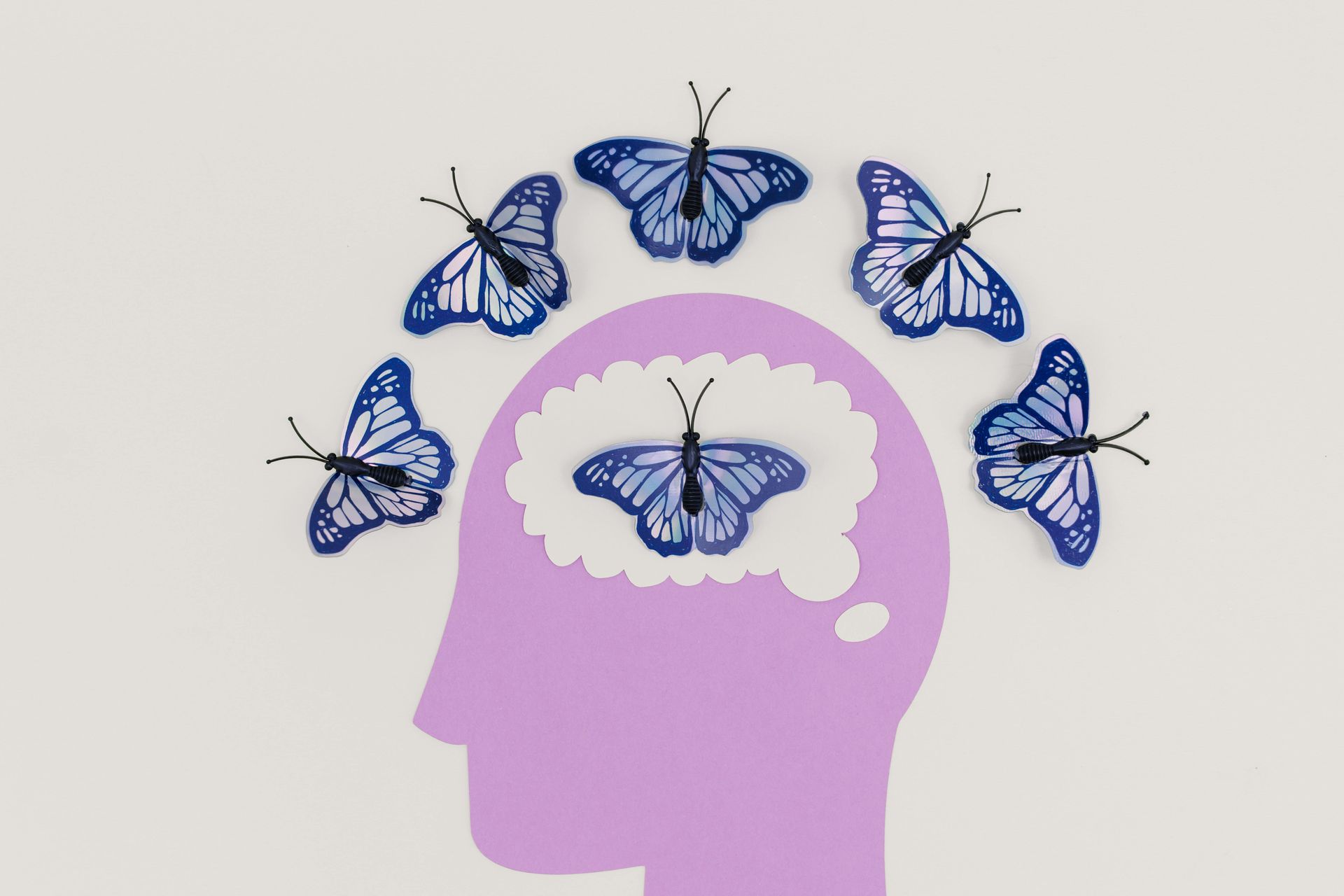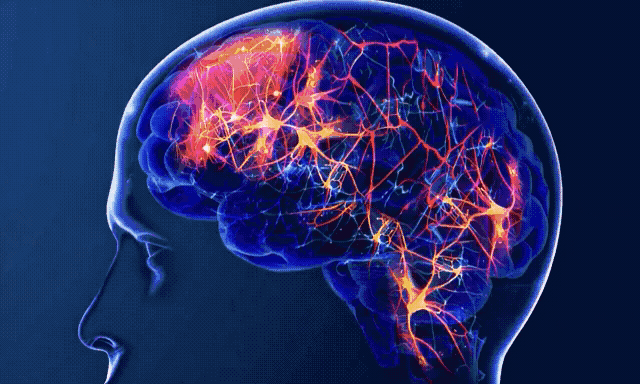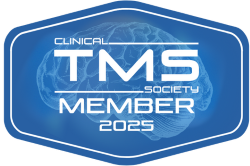The Midlife Brain Reset: How TMS Supports Long-Term Cognitive Vitality
August 6, 2025
Key Takeaways From This Article: - Midlife cognitive decline is treatable, not inevitable
- Your sharp mind is still there - just stuck behind hormonal chaos
- TMS can restore memory, focus, and processing speed in weeks
- Professional women don't have to accept "this is just fifty"
- One-day treatment options exist for busy lives
- Midlife cognitive decline is treatable, not inevitable
- Your sharp mind is still there - just stuck behind hormonal chaos
- TMS can restore memory, focus, and processing speed in weeks
- Professional women don't have to accept "this is just fifty"
- One-day treatment options exist for busy lives

Carol showed up to my office Tuesday morning and I could tell she'd been crying in her car. Her mascara was smudged and she kept checking her phone like she was avoiding eye contact.
I've been seeing Carol for maybe six years now. She runs some big marketing firm downtown, drives a Tesla, always has her shit together. But something was different. She looked... smaller somehow.
"I need to ask you something and I need you to be straight with me," she said. "Do you think I have dementia?"
Carol is fifty-three years old.
"Last week I went to my daughter's high school to pick her up from soccer practice. Sat there for twenty minutes wondering why no one was coming out. Then I remembered Emma graduated college two years ago."
She started crying again. "I used to run board meetings with twelve different campaigns running in my head at once. Now I can't remember if I fed the dog this morning."
I've had this exact conversation four times in the past month. Different women, same story. All of them convinced they're losing their minds.
And you know what the worst part is? Most doctors would pat Carol on the head and tell her it's menopause. Maybe suggest some hormone cream and call it a day.
But I know something now that I didn't know two years ago. Something that's going to piss off a lot of my colleagues but I don't care anymore.
This isn't menopause. It's not normal aging. It's fixable.
The Day Everything Changed
A guy names David came to me about three years back, total mess. Fifty-two, wife left him, business falling apart. Classic midlife meltdown.
Started him on TMS for depression. Nothing fancy, just standard protocol. But around week three he says something that made me stop writing notes.
"Doc, something weird happened yesterday. My accountant was explaining some tax thing - you know, the complicated stuff I usually zone out for - and I actually got it. Like really got it. Started asking questions that made sense."
I'm thinking, okay, depression's lifting, he feels more confident. But then he keeps going.
"And at work, I'm not losing track of conversations anymore. It's like someone cleaned my windshield. Everything looks sharper."
That night I'm lying in bed thinking about what David said. Couldn't sleep. Got up at midnight and started reading research papers instead of scrolling Instagram like a normal person.
Turns out TMS doesn't just help mood. It wakes up brain regions that have gone dark. Including all the executive function stuff - memory, focus, decision making. The exact things Carol was losing.
The exact things I was starting to lose too, if I'm being completely honest here.
What Nobody Tells You About Fifty
Your brain doesn't just slow down when you hit menopause. It gets hijacked by hormonal chaos.
Think about those mornings when you walk into the kitchen and just stand there, coffee mug in hand, completely blank. You came downstairs for something specific but now you can't remember what. You check your calendar twice and nothing sticks. Start typing an email and lose your thought halfway through.
That's not senility creeping in. That's estrogen with your neurotransmitters. Cortisol flooding your system because you're dealing with teenagers and aging parents and a career and trying not to lose your damn mind.
Your dorsolateral prefrontal cortex - fancy name for your brain's CEO - starts working part-time without giving you notice.
Most doctors will suggest yoga. Fish oil. Maybe some bioidentical hormones if you're lucky. As if you can meditate away brain chemistry.
I used to say the same bullshit. Then I learned better.
My Accidental Discovery
After David's turnaround, I started trying TMS on other people with brain fog. I was curious.
Sandra was first. Architect, fifty-four, couldn't visualize building designs anymore. Just... gone. Twenty-five years of spatial processing skills, disappeared.
Three weeks into treatment she calls me, sobbing. Happy sobbing.
"I can see the buildings again. In my mind. Like before. I thought that part of me was dead."
Then came Maria. Research scientist who'd lost her ability to synthesize data.
Then Janet. CFO who couldn't analyze financial models anymore.
One by one, these brilliant women got their brains back. Not over months. Over weeks.
I started keeping detailed records. Before and after cognitive tests. The data was undeniable.
What Actually Happens
TMS uses magnetic pulses to jumpstart specific brain areas. For cognitive stuff, we target the left dorsolateral prefrontal cortex - your brain's control tower.
It's like CPR for exhausted neurons. The magnetic field goes through your skull and gives tired brain cells the energy to start firing again.
But here's the thing - it's not adding chemicals to your system like antidepressants do. It's working with your brain's natural ability to rewire itself. Helping networks that went quiet remember how to talk to each other.
Carol came back after our KIND One-Day protocol looking like a completely different person. Standing straighter. Making eye contact.
"I ran a strategy meeting yesterday," she told me. "Not only did I follow every thread of discussion, I was connecting dots I hadn't seen in months. My team kept looking at me funny - I think they forgot what I used to be like."
Her husband said it was like getting his wife back.
Why One Day
Traditional TMS takes six weeks. Five days a week. That's insane if you're trying to run a business or raise kids or have any kind of life.
So we figured out how to compress the whole thing into eight hours using theta burst stimulation.
People think I'm nuts when I tell them this. Fix your brain in a day. But yeah, that's exactly what happens.
It's not voodoo. It's neuroscience for people who don't have time to sit in waiting rooms for two months.
The Real Cost
Here's what breaks my heart. I see these incredible women - lawyers, doctors, executives, artists - and they're convinced their best years are behind them. They start turning down opportunities. Avoiding challenges. Telling themselves this is just what fifty looks like.
But when you fix the underlying problem, when you get their brains working again, they remember who they are. They start companies. Go back to school. Take on projects that scare them.
Not because we turned back time. Because we fixed what was broken.
If This Sounds Like You
Look, if you're reading this and thinking "holy crap, that's me" - if your brain feels like it's wrapped in cotton, if simple tasks feel impossible, if you can't access the sharpness that used to define you - stop accepting this as normal.
The woman you used to be is still in there. She's just trapped behind hormonal chaos and fried neural networks.
We can get her back. Sometimes in a single day.
Your best chapters might still be ahead of you. They deserve a brain that works.

Meet the Author
Dr. Georgine Nanos, MD, MPH
Founder of Kind Health Group







